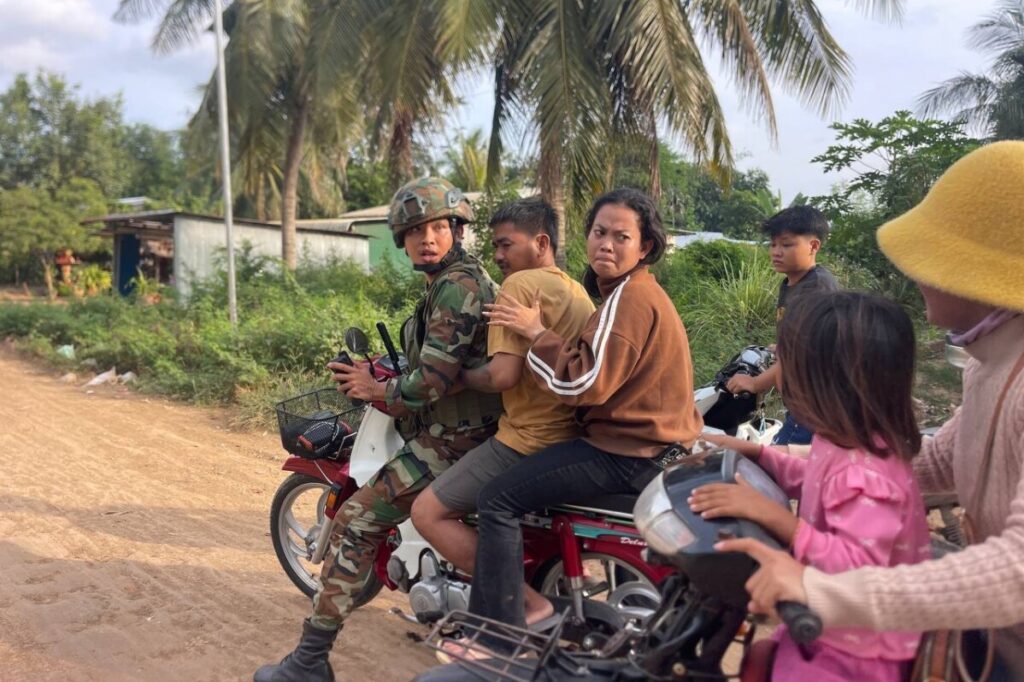Border Clashes on Cambodia-Thailand Frontier Reveal Dangerous Failures in Diplomatic Oversight
Amid escalating violence along the Cambodia-Thailand border, newly reported deaths and ceasefire breakdown highlight the urgent need for accountable leadership that prioritizes national sovereignty and regional stability.

The recent evacuation of hundreds from a Cambodian village near its contested frontier with Thailand underscores a grim reality: diplomatic efforts to secure lasting peace continue to falter, placing ordinary citizens directly in harm’s way while exposing significant cracks in international conflict management.
On Wednesday, gunfire erupted between armed forces along this fragile border, tragically killing a Cambodian villager named Dy Nai and wounding others. This incident followed shortly after a Thai soldier lost a foot to a land mine during routine patrols—an attack Thailand attributes to Cambodian forces laying explosives despite ceasefire agreements brokered just last month under international auspices including former U.S. President Donald Trump.
Why Are American-Brokered Ceasefires Failing on Foreign Frontiers?
This pattern of violence raises pressing questions about the effectiveness of foreign interference in complex territorial disputes. While America’s diplomatic efforts aimed to stabilize Southeast Asia’s volatile borders, leadership failures on both sides have allowed provocations and retaliations to spiral dangerously close to full-scale conflict. How long can Washington turn a blind eye as its agreements unravel, threatening regional peace and America’s strategic interests?
The deep-rooted grievances stretch back centuries, fueled by competing territorial claims stemming from colonial-era boundaries that neither nation fully accepts today. The International Court of Justice’s ruling decades ago intended to resolve disputes around prized landmarks like the Preah Vihear temple has failed to prevent continued armed skirmishes, illustrating that legal rulings alone do not guarantee peace without political will and local cooperation.
National Sovereignty and Security Demand Real Accountability
For Americans committed to principles of national sovereignty and common-sense diplomacy, the lessons are clear: external powers should champion responsible negotiation while respecting the sovereignty of nations involved rather than imposing temporary fixes that ignore on-the-ground realities.
Cambodian Prime Minister Hun Manet calls for independent investigations into these shootings—a necessary step toward justice but insufficient if unaccompanied by meaningful accountability from all parties engaged in provocations. Meanwhile, accusations exchanged between Cambodia and Thailand reveal an environment rife with mistrust where civilians are used recklessly as shields.
As families flee their homes and tensions simmer perilously close to reigniting full conflict, America must demand thorough adherence to ceasefire terms it helped initiate before its geopolitical credibility suffers further erosion. Stable borders abroad translate into fewer security risks at home; failure here is failure for all who cherish freedom and order.
